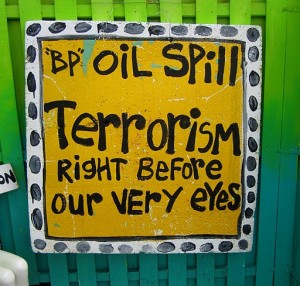Why Sensationalize an Already Sensational Event?
Scientific American reports, Radiation leaking from Japan's quake-hit nuclear plant as part of the devastation in Japan from the record setting earthquake. Sure, four out of five nuclear facilities immediately shut down safely. But of one unit at the fifth, they say
The blast raised fears of a meltdown at the facility north of Tokyo as officials scrambled to contain what could be the worst nuclear disaster since the Chernobyl explosion in 1986 that shocked the world.
Uh, yeah. Actually, this looks more like the Three Mile Island "disaster" to me. Chernobyl used a reactor technology that was considered too unstable outside of the Manhattan project or the U.S.S.R. that involved a big pile of carbon graphite to regulate the reaction. Graphite burns. Chernobyl burned. Chernobyl also exploded wide open. People stood miles away touristically looking directly into the reactor core, and then dying from the gamma ray exposure. The G.E. reactors in Japan are water filled steel containers. They don't burn.They didn't burst. The reactor was idled within hours. The quake broke the outer concrete containment structure (but not the inner steel one) and also interrupted all three safety backup systems. So the reactor overheated before they got it under control, and they had to vent some probably radioactive steam to prevent the inner containment from also rupturing. I say "probably radioactive" because the cooling water certainly contains tritium (Hydrogen-3) and traces of other isotopes. But so far there are no reports of measurable radiation beyond the reactor premises. I'm sure there will be. Personally, I take this as a sign that we really need to move beyond the 1970's style Cold War reactors to the 1990's style ones now being specified in Europe. These are designed to fail safe even if all the active safety systems fail. Sure, they cost a little more to build. But they are pretty much proof against flood, earthquake, and bomb attacks short of nuclear warheads releasing radiation. I have also advocated building next generation fast neutron reactors that can use depleted uranium, thorium, and most current generation reactors waste as fuel. A past post of mine: Whatever Became of Thorium? These reactors are also inherently safer, because they are using less volatile fuel. This should be an opportunity to discuss the future safer implementation of this inevitable successor to coal power, rather than to propagate, "Gee whiz, isn't noocular power dangerous?"
